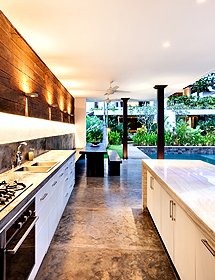- Find out what you can afford to pay – meet with your bank or mortgage broker
- Apply for a mortgage and get pre-approved by your lender. This lets the seller know that you’re a serious buyer. Costs for pre-approval are usually nominal and many lenders allow you to pay those costs at closing.
- Make a list of your must-have’s and your wants. Your must-have list could include the number of bedrooms and baths your family will need, one story versus two stories, garage requirements. Your want list is for those things you’d like to have but that aren’t absolutely necessary – a pool, den, media room.
- Visualize the home with your belongings. Will your furniture fit, is there enough natural light?
- You should consider hiring a real estate agent – someone who will represent you, not the seller.
- Think with your head, not your heart. There are many homes to choose from so don’t rush to make a decision that you may regret later.
- Keep the following items handy to assist you in your home search:
- Maps of the areas where you’re focusing your search
- Paper and pen for taking notes while you’re looking at properties
- Camera to help differentiate one property from another. This is especially helpful if you’re viewing more than a few properties in one outing.
- Information provided to you by your agent or flyers you’ve picked up at individual properties
- Look at potential properties from a seller’s point of view, considering both positive and negative features.
- Remember the following essentials:
- Use a professional inspector to inspect the property
- Schedule a second walk-through to be held within 24 hours of closing
- Make certain no changes have been made that were not agreed to in the offer
- Include mortgage and inspection contingencies in your written offer
A professional real estate agent keeps track of all the details for you. Please call or email me to discuss buying your first home.







